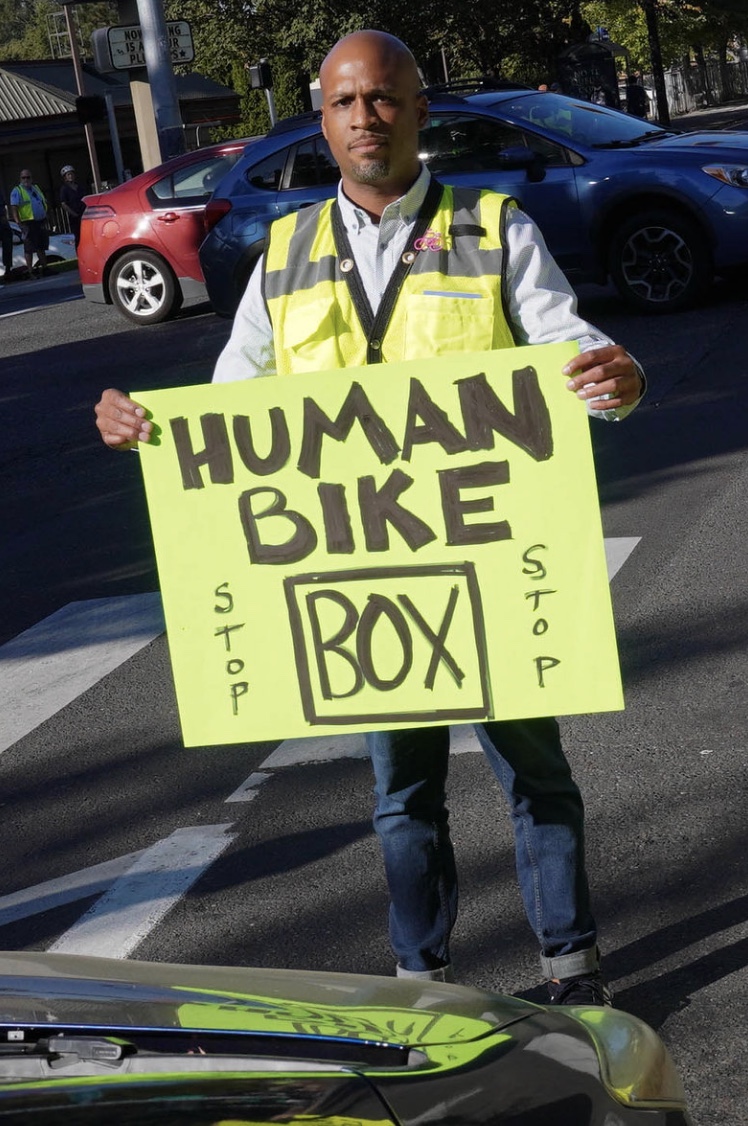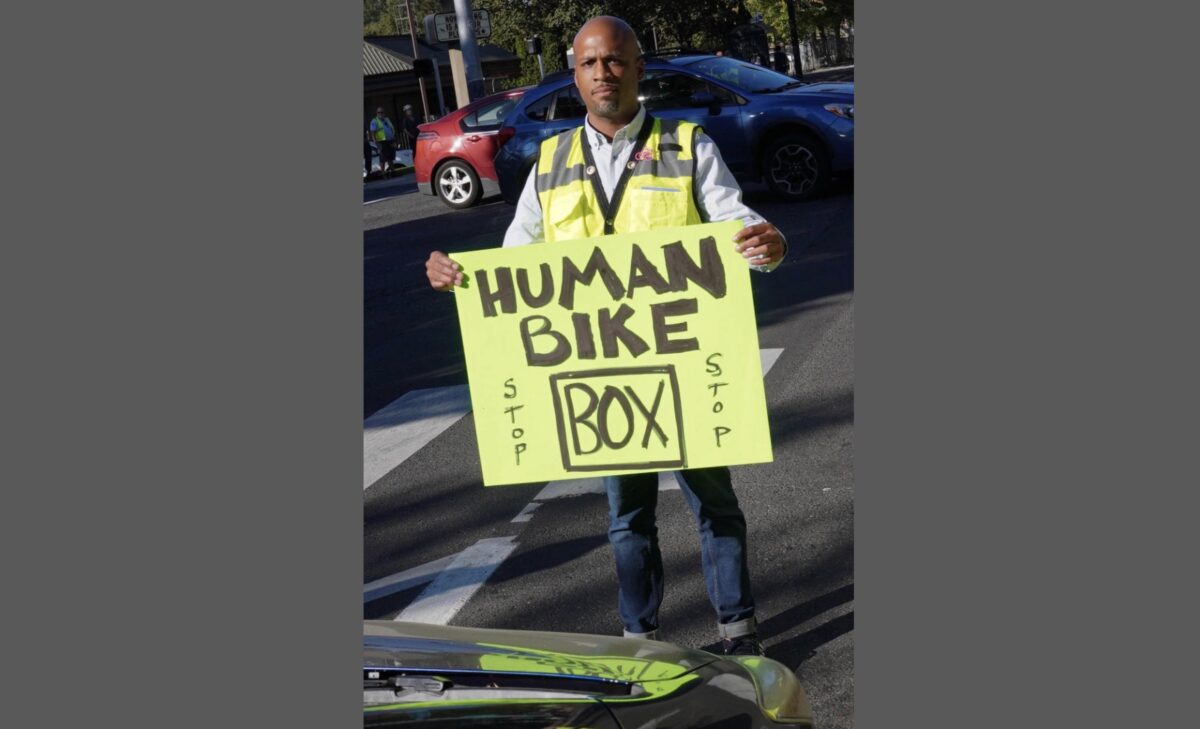
It’s eye-opening to see exactly which interests have the most direct access to the halls of power, and which entities encourage or prohibit bold leadership. And, as an exhausted dad on the campaign trail, I certainly learned about the structural limitations that make it harder for many Portlanders to ever consider running for office.
It’s with this background that I’m endorsing Measure 26-228, the campaign to reform Portland’s City Charter on the November ballot.
As a nonprofit director, a two-time candidate, and now a Metro Councilor-elect, I’ve spent the last five years with a front row seat to how local governments, electoral campaigns, and advocacy movements interact. Each of these experiences have given me opportunities to reflect on both where we’ve made strides towards transportation justice, as well as what systemic barriers are blocking us from solving ongoing challenges including investing in East Portland, reducing traffic fatalities, and ensuring more Portlanders live in safe, walkable neighborhoods. It’s eye-opening to see exactly which interests have the most direct access to the halls of power, and which entities encourage or prohibit bold leadership. And, as an exhausted dad on the campaign trail, I certainly learned about the structural limitations that make it harder for many Portlanders to ever consider running for office.
It’s with this background that I’m endorsing Measure 26-228, the campaign to reform Portland’s City Charter on the November ballot.
Anyone who wants to see safer streets, more bike lanes, and a government more responsive to the campaigns of active transportation advocates should be voting to adopt a new charter for Portland’s city government. Despite wholly inaccurate rhetoric from the measure’s skeptics, Portland’s charter reform consists of three simple components; professional, centralized management of our bureaus, ranking candidates in future city elections, and creation of four City Council districts each electing three representatives. Each of these changes will not only make our local government more efficient and accountable, but each will also make it easier for us to make Portland a more safe, walkable, equitable city for everyone.
Anyone who wants to see safer streets, more bike lanes, and a government more responsive to the campaigns of active transportation advocates should be voting to adopt a new charter for Portland’s city government.
Professional bureau management pays massive dividends
It will be a complete game-changer for city bureaus to possess the long-term stability of oversight from a nonpolitical City Administrator. PBOT, for example, has been led by four different Commissioners over the past six years; and in our current charter the Mayor could change commissioner assignments despite election outcomes, a fifth could take over post election. The constant churn of leadership slows our ability to build long-term campaigns for the bold, visionary changes to our streets that we need. Eliminating the commission form of government will also resolve political tensions that have historically discouraged collaboration between bureaus. We need better coordination so that Portland’s bureaus work together to, for example, build bioswales, crosswalks, and improved lighting simultaneously without months of red tape.
It’s worth noting that under our current system, nobody running for City Council knows what bureaus they’ll be assigned by the Mayor. Even a candidate who prioritizes transportation improvements currently can’t promise they’ll have any power to enact change. Measure 26-228 means that all of the 12 Commissioners who get elected have power to influence transportation policy.
Ranked choice voting cultivates new leadership likely to support transportation reform
Have you noticed how many of our campaigns for safer streets, affordable housing, and better transit service seem so popular with the public, but somehow rarely translate to the priorities of city leadership? Research shows that elections run with ranked choice voting are more likely to elect women, people of color, the working class, and renters. Under Measure 26-228, City Council will better reflect the full preferences of Portlanders.
Not every person who gets elected with this model will share all of your values – in fact, I’d expect plenty of opportunities for all sorts of Portlanders to win elected office. But that is actually the point – greater representation of perspectives will bring new voices to city hall. Many of them will care deeply about safer streets in every neighborhood.
East Portland needs better representation for true investment
In my work with Oregon Walks (who endorsed Measure 26-228 this month), I’ve seen the disconnect between the city’s decision makers who mostly live in the central city and the communities in east county who continue to struggle. It’s hard to articulate the hopelessness that so many East Portlanders feel with regard to gun violence, economic hardship, rising rents, and anxiety around crime and homelessness. East Portland is home to so many of Portland’s communities of color(including my family), and there’s so much work to be done to tackle lingering inequalities.
Historically and currently, East Portland has lacked the political clout to demand investments to address these challenges. Only two people living east of 82nd Avenue have ever been elected to City Council in Portland’s history. Measure 26-228 would ensure that East Portland would not only have three elected officials from East Portland – they would directly answer to an EastPortland-specific electorate. Thanks to multi-member districts, it’s likely that at least one (if not all three!) East Portland councilors would incorporate mobility justice and safer streets into their political platform. If we want to reverse the trend of skyrocketing traffic fatalities, East Portland in particular needs substantial political representation to get the investments in safer streets that are commensurate with the challenge.
I don’t want to claim that charter reform will fix all our problems – we must be clear-eyed about the challenges Portland faces. But passing Measure 26-228 to empower everyday Portlanders to tell city council it’s time to advance reforms for transportation and racial justice is a crucial first step. We must empower city hall to be more effective, transparent, and accountable. In my forthcoming role as Metro Councilor, I’m excited to collaborate with a reinvigorated city government that is better prepared and equipped to fight for safer streets and walkable communities for all.
Join me in voting Yes on Measure 26-228.
Ashton Simpson was elected to the Metro Council in May 2022 to represent District 1, and his term begins in January. Ashton is the former Executive Director of Oregon Walks, the state’s pedestrian advocacy organization.



